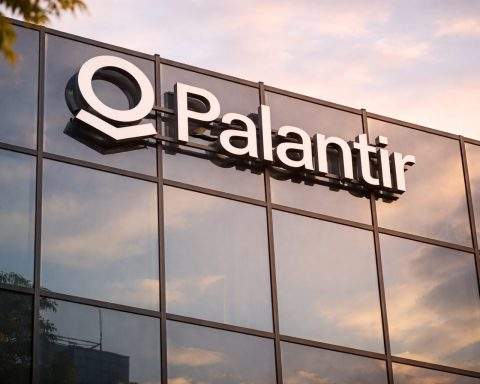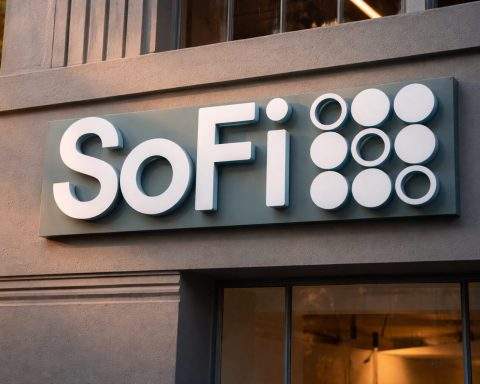- Apple mergers chief Adrian Perica and services lead Eddy Cue have met with Perplexity’s team multiple times to evaluate the technology, with no formal offer or bid discussed as of June 2025.
- Perplexity’s latest funding round closed in 2025 and valued the company at about $14 billion, making an Apple acquisition by far the largest deal in Apple’s history, surpassing Beats’ $3 billion purchase.
- Apple is reportedly considering acquiring Perplexity to bolster its AI talent and tech portfolio and to potentially offer its own AI-powered search engine.
- Perplexity AI was co-founded in 2022 by Aravind Srinivas and others as an “answer engine” that provides up-to-date answers with cited sources.
- Perplexity blends large-language models with live web search to generate answers with inline citations and real-time information access.
- Apple has historically pursued on-device AI with privacy in mind, and at WWDC 2024 rebranded its efforts under “Apple Intelligence” while progress toward a smarter Siri has remained slow.
- The acquisition would face antitrust scrutiny, and Apple’s culture typically favors smaller deals, with reports that Perplexity was near a Samsung deal to bring its AI features to Samsung phones.
- Google is a major competitor in AI and search, and Apple could move toward AI-powered search that challenges Google’s dominance, which currently pays Apple about $20 billion per year for default Safari search.
- Industry analysts have described the talks as potentially game-changing, with some suggesting Apple could offer around $30 billion to secure Perplexity promptly.
- A potential Apple deal could lead to a tightly integrated, Apple-branded AI experience across Safari and Siri, spur an “Apple AI Kit” for developers, and shift advertising dynamics away from traditional search.
Apple Inc. has been holding internal discussions about potentially acquiring Perplexity AI, a fast-rising artificial intelligence startup known for its conversational search engine reuters.com reuters.com. According to Bloomberg’s reporting (later cited by Reuters), Apple’s mergers chief Adrian Perica and services lead Eddy Cue have met with Perplexity’s team multiple times to evaluate the technology macrumors.com. These talks are still early-stage and no formal offer has been made – in fact, Apple has “not discussed a bid with Perplexity’s management” yet reuters.com. Nonetheless, the prospect is significant: Perplexity’s latest funding round valued it at around $14 billion, so an acquisition would be “by far the largest deal in the Cupertino company’s history, topping its $3 billion purchase of Beats” macrumors.com. Apple is reportedly contemplating this move both to bolster its AI talent and tech portfolio and to potentially offer its own AI-powered search engine in the future engadget.com reuters.com. Perplexity’s leadership says they have “no knowledge of any current or future M&A discussions” with Apple reuters.com, but the mere news of Apple’s interest has stirred excitement in the tech industry and even caused a dip in Google’s shares, underscoring the competitive ramifications 1 .
Apple’s AI Strategy and Siri’s Evolution
Apple’s approach to artificial intelligence has historically been cautious and privacy-centric, focusing on on-device machine learning for features like Face ID, photo search, and Siri’s speech recognition. While Apple was an early mover in voice assistants with Siri (acquired in 2010 and introduced in 2011), it has since lagged behind rivals in the era of generative AI and large language models. In June 2024, at WWDC, Apple even rebranded its efforts under the banner “Apple Intelligence”, announcing plans to make Siri smarter and more intuitive. However, progress has been slow – features promised in 2024 “still remain incomplete,” and a “smarter Siri digital assistant is nowhere to be found as of yet” phonearena.com. Internally, Apple has reportedly built some large-language model tools (often dubbed “Apple GPT” by the press), but unlike OpenAI’s ChatGPT or Google’s Bard, Apple has not released a public conversational AI. The consequence has been growing pressure on Apple: in 2025, shareholders even filed a lawsuit accusing Apple of overstating its AI progress and downplaying how long it would take to integrate advanced AI into Siri reuters.com reuters.com. The complaint noted Apple’s “AI changes [were] modest” when it launched Apple Intelligence, and that Apple had to delay key Siri AI upgrades to 2026, contrary to investors’ expectations reuters.com 2 .
Facing this criticism and a rapidly evolving AI landscape, Apple appears to be pivoting its strategy. CEO Tim Cook has hinted at major AI investments, and the company is reportedly ramping up its infrastructure – for example, by working with Foxconn to build dedicated AI servers for new generative AI features across Apple’s ecosystem datacenterdynamics.com reddit.com. Apple’s powerful in-house silicon (with Neural Engine chips capable of billions of operations per second) provides a foundation for on-device AI, but the company may now be acknowledging that it needs top-tier AI talent and established technology to truly compete. This context helps explain why acquiring Perplexity AI – with its ready-made generative AI product and team of AI researchers – is on the table. As one report put it, “Apple scrambles to play catch-up in the generative AI race” and is considering an unprecedented move to buy its way into contention 3 .
Perplexity AI: Capabilities and Market Position
Perplexity AI is a high-profile startup specializing in conversational search and AI-powered question answering. Co-founded in 2022 by Aravind Srinivas (an Indian-American computer scientist who previously worked at OpenAI, Google Brain, and DeepMind) and others, Perplexity set out to build an “answer engine” that differs from traditional search engines by providing direct, up-to-date answers with cited sources en.wikipedia.org. Users can ask natural language questions and receive explanatory responses with references, much like OpenAI’s ChatGPT but with an emphasis on trustworthy sourcing. This approach has resonated with users looking for an AI assistant that can back up its answers, and it’s especially popular among younger, tech-savvy users who are early adopters of AI search tools 4 .
In just a few years, Perplexity AI has grown into “one of the leading AI startups” in the search arena macrumors.com. It offers a web interface, mobile apps, and even a native Mac app for seamless usage across platforms. Notably, Perplexity launched its own iPhone app with an AI assistant, which some tech reviewers say “does way better than Siri” in many tasks 9to5mac.com. The startup has continually expanded its features – including a voice query mode, AI image generation, and community-driven “threads” – aiming to be a general-purpose AI research assistant. It has also distinguished itself by integrating real-time information access, meaning it can retrieve and summarize up-to-the-minute data from the web, rather than being limited to a static training cutoff.
Perplexity’s rapid growth and potential have attracted heavyweight backers. The company has secured significant funding – including investments from Nvidia (the GPU giant), and notable tech figures like Jeff Bezos, Elad Gil, and Nat Friedman en.wikipedia.org. In its latest funding round (closed in 2025), Perplexity was valued around $14 billion, a stunning figure that reflects both the frenzy around AI and Perplexity’s position as a top-tier player reuters.com. For context, this valuation is roughly five times higher than what Apple paid for Beats, its biggest acquisition to date. Perplexity’s status is such that it’s often mentioned alongside the industry leaders – its AI “provides information summaries to users, similar to OpenAI’s ChatGPT and Google’s Gemini” (Google’s upcoming advanced AI model) reuters.com. In other words, Perplexity is seen as a potential cornerstone of the next-generation search/AI experience.
Technically, Perplexity’s edge comes from combining large-language models with search capabilities. It uses advanced AI models under the hood (the company hasn’t publicly disclosed whether it uses its own proprietary LLMs or a blend of models like OpenAI’s GPT-4 with custom tuning). What sets it apart is an algorithm that retrieves relevant information from the internet and then generates answers with inline citations, allowing users to verify facts en.wikipedia.org. This aligns well with Apple’s emphasis on user trust and privacy – an AI that can justify its answers could be a natural fit for Apple’s ecosystem, where transparency and reliability are valued. Additionally, Perplexity has shown ambition to move beyond software: it partnered with Deutsche Telekom to explore an AI-integrated smartphone, demonstrating interest in embedding AI into hardware experiences en.wikipedia.org. All these factors make Perplexity not just an app, but a holistic AI platform that could greatly accelerate Apple’s AI roadmap.
Why Apple Might Buy Perplexity: Talent, Tech and Safari Search
From Apple’s perspective, acquiring Perplexity AI could address several strategic needs at once. First and foremost is the talent grab. Perplexity’s team includes elite AI researchers and engineers (including alumni of OpenAI and Google’s AI labs) who are adept in large language models and search – areas where Apple has relatively less public expertise. Bloomberg’s Mark Gurman noted that “buying Perplexity would give Apple an infusion of AI talent, a known brand in the AI space and a consumer product”, and “could also potentially assist with future recruiting efforts” by signaling Apple’s seriousness in AI 9to5mac.com. In the current climate, where AI experts are in fierce demand, an acquisition can instantly bring dozens of top minds into Apple’s ranks and prevent them from going to competitors.
Secondly, Perplexity would hand Apple a proven consumer-facing AI product at a time when Apple has none. Despite integrating AI under the hood in features, Apple lacks a marquee consumer AI service like a ChatGPT or Bard. Perplexity’s AI search app could be “plugged right into Safari and Siri” to “revamp [Apple’s] disappointing AI offering,” as one analyst put it thewrap.com. In fact, according to reports, Apple is considering integrating AI-driven search into its Safari browser, moving away from its dependency on Google reuters.com. Currently, Google pays Apple an estimated $20 billion per year to remain the default search engine on Safari macrumors.com. However, this arrangement is under threat – the U.S. DOJ’s ongoing antitrust case against Google has proposed banning such exclusive payments reuters.com. Apple’s own Eddy Cue even testified that the industry is “pivoting away from traditional web search toward AI-driven answers,” hinting that change is on the horizon 9to5mac.com. If regulators or market forces upend the Google-Apple search deal, Apple would suddenly lose that revenue and be forced to find an alternative for default search on its devices. Owning Perplexity AI could be Apple’s insurance policy and strategic play in this scenario. As 9to5Mac observed, Cue’s testimony suggests Apple sees AI answers as the future, and Perplexity already has “what Apple lacks: a consumer-facing AI search product with real-time web access and name recognition” 5 .
There’s also the appeal of reducing reliance on a rival. Apple has a long history of bringing key technologies in-house to control the user experience (from chip design to software frameworks). With search, Apple has so far partnered with Google out of convenience and profit. But if Apple believes AI-driven search is the future, it may prefer to own that technology outright. By integrating Perplexity’s capabilities into Safari, Apple could offer iPhone and Mac users an Apple-branded AI search assistant that answers questions, summarizes webpages, and performs tasks – effectively an evolved Siri that can handle general knowledge queries. This would differentiate Apple’s user experience and, potentially, allow the company to develop its own search revenue streams (for instance, through AI-enhanced ads or App Store tie-ins) without just funneling users to Google. It’s telling that Apple’s M&A chief and AI leaders have discussed integrating Perplexity’s search tools directly with Apple’s services linkedin.com linkedin.com. The internal vision seems to be that Perplexity’s tech could be woven into the fabric of iOS/macOS – from Safari’s search bar to Siri’s responses – “with a seamlessness that only comes via ownership,” as one commentator noted 6 .
However, Apple is proceeding cautiously. The internal debate includes the option of a partnership instead of a full acquisition macrumors.com. Apple could strike a deal to license Perplexity’s AI for Safari and Siri, achieving integration without a $14+ billion buyout. Indeed, Bloomberg reports that Apple and Perplexity have already held multiple meetings to discuss technology, and one idea floated is to partner if an acquisition isn’t pursued macrumors.com. There are reasons Apple might hesitate to pull the trigger on buying Perplexity outright: the price is steep, Apple’s culture tends to prefer small acquisitions (often under $500 million) rather than mega-deals, and an acquisition would instantly put Apple in the spotlight of AI regulation and scrutiny (especially given high valuations). Plus, Perplexity’s fate isn’t waiting around – it is “said to be close to a far-reaching deal with Samsung to bring its AI features to [Samsung] phones”, which could complicate any exclusive arrangement with Apple macrumors.com. If Samsung, the world’s largest Android phone maker, integrates Perplexity broadly, Apple might lose a chance to make it a unique feature of its own devices. This raises the urgency for Apple: one analyst argues Apple “ought to call Perplexity’s CEO and offer $30 billion… right away,” before rivals tie the startup up in partnerships thewrap.com. In short, Apple’s interest in Perplexity is driven by a mix of offense and defense – to supercharge its AI efforts and prevent competitors from gaining an edge with the same technology.
Industry and Analyst Reactions
News of Apple’s interest in Perplexity AI has drawn significant commentary from industry analysts, investors, and the tech community. Many see it as a bold but necessary move for Apple. Market observers note that Apple is virtually the only Big Tech firm without a clear generative AI strategy on the consumer side, and acquiring Perplexity could instantly change that narrative. As Marcus Mendes wrote, Apple considering Perplexity shows it’s finally addressing the AI gap, potentially making its “biggest acquisition ever” to catch up 9to5mac.com 7 .
Mark Gurman, who broke the story, highlighted that Apple’s discussions are indeed motivated by the need for “more AI talent and tech”, reinforcing that Apple’s leadership recognizes a shortfall in what they can achieve internallytechmeme.com 9to5mac.com. Apple declined to comment on the rumors, and Perplexity officially stated it has “no knowledge” of any deal in the works macrumors.com. But that hasn’t stopped speculation. Notably, Meta Platforms (Facebook’s parent) had also flirted with acquiring Perplexity earlier in 2025 and was rebuffed reuters.com. Bloomberg reported that after failing to reach an agreement with Perplexity, Meta pivoted to invest $14.8 billion in another AI firm (Scale AI) and hired its CEO to lead a new AI unit reuters.com. This suggests Perplexity has been in demand, and that Apple is not alone in coveting its capabilities.
Financial analysts have also weighed in – the idea of Apple potentially replacing Google with an in-house AI search caused a small tremor in the stock market. Alphabet (Google) shares fell when Bloomberg’s report came out phonearena.com, reflecting investor realization that Google’s lucrative search deal with Apple could be in jeopardy. “If Apple acts now, it could start integrating Perplexity… before it’s too late,” warned tech columnist Alex Kantrowitz, who argued that waiting until the DOJ forces Apple’s hand could “lead to years of setbacks” in building a new search platform thewrap.com. He and others suggest that the market would actually reward Apple for a bold AI acquisition, viewing it as a sign the company is pursuing growth and innovation rather than sitting on its cash 8 .
Some experts have expressed skepticism, noting that Apple has historically been able to develop technology in-house. There’s an opinion that “Apple never wants perplexity, they can build it”, as one LinkedIn commenter quipped linkedin.com. However, even skeptics acknowledge the current AI wave is different – the leading AI models have required enormous data and training time, and Apple has been uncharacteristically quiet. The consensus among many analysts is that Apple cannot afford to “stand still” in AI. A quote circulating from The Wrap captures the sentiment: “Apple’s slow AI start is a strategic crisis. There will never be a better time to use its cash… Spending $30 billion on a legitimate AI player is vastly better than standing still” thewrap.com. In that piece, Kantrowitz flatly stated that “Apple buying Perplexity is such an obviously good deal for both companies that I feel silly even writing it down”, envisioning that Apple’s 2 billion devices could make Perplexity’s tech as ubiquitous as ChatGPT 9 .
Even Perplexity’s own executives have commented (albeit cautiously). Dmitry Shevelenko, Perplexity’s Chief Business Officer, told The Wrap “Not likely!” regarding a potential Apple tie-up – but he added a cryptic remark that in this industry, we’re “not living in a world of likelies”, implying surprises happen thewrap.com. He confirmed “Apple and Perplexity have had no M&A discussions to date, not even a wink” thewrap.com, which aligns with Bloomberg’s claim that Apple had not yet approached Perplexity’s management as of June 2025. This indicates that all the buzz is driven by sources inside Apple’s camp. Still, the very fact that a top Perplexity executive was fielding such questions shows how significant the story has become in AI circles.
Overall, the reaction is that an Apple-Perplexity deal would be a “game-changer”. Analysts compare it to Microsoft’s deep partnership with OpenAI – an acknowledgment that fundamental AI tech is now as critical as smartphone operating systems or app stores. There is also acknowledgment that Apple might pursue a less drastic route (like partnership), but from a narrative standpoint, a full acquisition would send the strongest message that Apple is all-in on AI. It’s rare to see Apple contemplating a $10B+ purchase, so the news itself is taken as a sign of how urgent the AI race has become, and most commentary frames it as a potentially pivotal moment for Apple’s future.
Competitive Landscape: Big Tech’s AI Arms Race
Apple’s deliberations about Perplexity AI come against the backdrop of an intense AI arms race among Big Tech. Every major player is making moves to secure talent, technology, and market share in generative AI:
- Microsoft & OpenAI: Apple’s biggest rival in PC software, Microsoft, arguably kicked off the current race by investing billions into OpenAI (makers of ChatGPT) and becoming its exclusive cloud provider. That partnership has given Microsoft a leading edge – it has integrated OpenAI’s GPT-4 model into Bing (Bing Chat), challenging Google in search for the first time in years. Microsoft is also weaving AI into its Office suite (e.g. GitHub Copilot, Microsoft 365 Copilot) and Windows. Essentially, Microsoft locked in a “partnership acquisition” of OpenAI’s tech without buying the company outright. The success of ChatGPT and Bing’s AI features likely put pressure on Apple; iPhone users can now access ChatGPT or Bing AI apps, but Apple has no equivalent built-in solution. Microsoft’s aggressive strategy demonstrates the value of aligning with a top AI research outfit – something Apple could achieve by picking up Perplexity. It’s worth noting that OpenAI itself, valued at ~$30 billion, is much larger than Perplexity. In theory Apple could have tried to partner with OpenAI or Anthropic, but those deals went to others (Microsoft and Amazon, respectively). Perplexity, being independent and focused on search, represents a second chance for Apple to align with a major AI provider.
- Google & DeepMind/Bard: Google is both a competitor and (for now) a partner to Apple. Google’s core business – search – is directly affected by the rise of AI answer engines like Perplexity. Google has responded by deploying Bard, its own conversational AI (powered by its LaMDA model), and by baking generative AI into Google Search (the Search Generative Experience, or SGE, that presents AI summaries above results). Moreover, Google has consolidated its AI research by merging DeepMind with Google’s Brain team into a single unit, and it’s working on a next-generation model called Gemini designed to surpass GPT-4 reuters.com. Google’s strategy is to leverage its massive data advantage and AI talent to maintain dominance in search and beyond. If Apple were to drop Google as the default on iPhones in favor of an AI engine (like Perplexity), it would be a huge blow to Google – cutting off billions in revenue and tons of user data. This explains why Google reportedly pays Apple so handsomely to stay default phonearena.com. Interestingly, Google itself hasn’t made a high-profile AI acquisition recently (because it already acquired DeepMind in 2014 and nurtured its own Brain team). But Google is not standing still – it’s infusing AI across Gmail, Docs, Android, and developing AI chips (TPUs) for efficient model training. Apple’s potential move with Perplexity is partly a countermove to Google’s AI surge. It’s even been reported that Apple has considered using Google’s very own upcoming Gemini model on iPhones, following Samsung’s lead, if that offers a shortcut to AI features phonearena.com. That somewhat ironic possibility underscores that Apple is exploring all options – either partner with Google’s AI or bring in Perplexity – to avoid falling behind. In essence, Apple is weighing whether to lean further on Google or to build a new path and compete.
- Meta (Facebook): Meta has taken a distinct approach by open-sourcing large language models (like its LLaMA model) and pushing AI into its social platforms (e.g. AI avatars, chatbots for Instagram, etc.). Meta’s CEO Mark Zuckerberg has emphasized a more open AI ecosystem. Recently, Meta created a new “Supercomputer” AI unit and, as mentioned, invested nearly $15 billion in Scale AI, a data labeling and model training firm, even bringing on Scale’s CEO Alexandr Wang to lead Meta’s advanced AI efforts reuters.com. Meta also attempted to buy Perplexity earlier but talks fell through reuters.com. This indicates Meta saw value in Perplexity’s search technology – likely to complement its AI assistants or even a potential web search entry. After failing to get Perplexity, Meta’s big bet on Scale AI shows it’s willing to spend for AI talent and infrastructure. If Apple acquires Perplexity, it not only gains tech Meta wanted, but also positions itself against Meta’s vision. Apple’s philosophy (closed, privacy-focused systems) is quite opposite Meta’s open-source and ad-driven approach. A robust AI search from Apple could potentially integrate with iMessage, Spotlight, or other parts of the Apple ecosystem, creating experiences Meta might struggle to match on iOS devices.
- Amazon: While not explicitly mentioned in reports about Perplexity, Amazon is another giant in the fray. Amazon’s AWS is competing to host AI models (it too invested $4 billion in Anthropic, another OpenAI rival, for cloud partnership). Amazon also has Alexa, which, like Siri, has fallen behind in the age of ChatGPT. Apple and Amazon share a similarity – both have popular voice assistants that need a generative AI makeover. If Apple buys Perplexity to turbocharge Siri, it could put pressure on Amazon to do something similar (perhaps Amazon will double-down on Anthropic or others to improve Alexa). Meanwhile, Amazon’s e-commerce search and ads business could also be impacted long-term if AI search engines change how people find products. So Amazon’s strategy (investing in Anthropic, launching Bedrock for AI services, etc.) is part of the landscape in which Apple is making decisions.
- Other Players: There are numerous smaller AI startups and projects (from OpenAI’s rivals like Cohere or AI21, to new search concepts like Neeva – which was acquired by Snowflake – and You.com, etc.). Many of these could be acquisition targets or partners for Big Tech. Apple’s interest in Perplexity underscores that even a company with Apple’s resources sometimes finds it more efficient to acquire rather than build from scratch, especially when time is of the essence. Competitors like Samsung (primarily a hardware maker) also have skin in the game – Samsung was rumored in 2023 to consider switching its phones’ default search to Bing with ChatGPT, which alarmed Google. Samsung appears to be exploring AI partnerships (hence the reported talks with Perplexity for Samsung devices) macrumors.com. If Apple secures Perplexity, Samsung might seek a different AI partner (or lean more on Google or other AI startups). The competitive web is complex, but fundamentally all tech giants are converging on one point: AI is the new battleground, whether via acquisitions, partnerships, or internal R&D.
In summary, Apple’s potential acquisition of Perplexity can be seen as a countermove to Microsoft’s OpenAI alliance, a defensive hedge against Google’s search dominance, a talent grab akin to Meta’s maneuvers, and a statement that it won’t be left behind by Amazon or others. It highlights how critical AI capabilities – especially in search and assistant technology – have become for platform owners. Each company is ensuring they have some control over generative AI, which is increasingly seen as core infrastructure for the next decade of tech.
Implications for the AI Industry, Consumers, and Developers
If Apple were to proceed and acquire Perplexity AI (or even if they form a deep partnership), the implications would be far-reaching:
- Impact on the AI Industry: Such a deal would be a strong signal that no AI startup is out of reach for Big Tech. A $14+ billion acquisition in AI would be among the largest ever in the sector, potentially setting a precedent (much as Facebook’s $19B WhatsApp purchase did in social apps). This could spark more AI M&A – other large companies might snap up remaining independent AI startups to avoid missing out. It might also consolidate power: AI innovation could cluster around a few tech giants (Google, Microsoft, Meta, Apple, Amazon), raising questions about open competition. On the other hand, Apple’s entry could heat up competition in AI research, possibly spurring even faster development of new models and tools as each tries to outdo the others. There’s also an angle of AI governance: Apple, known for curation and control, might bring a more closed, privacy-oriented ethos to a field that has been relatively open (with open-source models and academic collaboration). How Apple handles Perplexity’s technology – e.g. keeping it proprietary to Apple devices or offering APIs – would influence whether AI options shrink or expand for consumers.
- Consumer Tech Market: For consumers, Apple owning Perplexity could lead to more powerful AI features in everyday devices. Imagine a future iPhone or Mac where Safari has an “Ask AI” sidebar that answers your questions with references, or where Siri can not only set reminders but also give detailed explanations, translate complex documents, or help plan trips by conversing naturally. Apple could integrate Perplexity’s AI across iOS – from Mail (summarizing emails) to Maps (answering questions about locations) to the App Store (guiding you to apps or content). It would make the Apple ecosystem even stickier if the best AI assistant is only on Apple devices. It might also force competitors to improve their offerings: Google would need to make Assistant and Android’s AI features standout beyond what an Apple+Perplexity combo offers. Users’ search habits could also shift; rather than googling, an iPhone user might increasingly “ask Perplexity” via Siri and rarely see a classic search results page. This has broader implications for the web and SEO – websites might optimize to be summarized by AI rather than clicked by humans. Additionally, replacing Google with an AI engine in Safari could alter the flow of advertising money and web traffic. Apple has thus far stayed out of search ads, but if it controls the search interface, it might explore new business models (or, true to form, it could double-down on subscriptions – e.g. a premium “AI assistant” service bundled with iCloud, akin to how it monetizes other services). One more consumer-facing aspect: privacy. Apple would likely emphasize that its AI is privacy-respectful (perhaps processing queries anonymously or on-device as much as possible), trying to differentiate from data-hungry Google. If done right, consumers could get the convenience of AI with Apple’s privacy assurances – a compelling proposition.
- Developers and Ecosystem: An Apple-owned AI platform could become a new developer platform in itself. Apple might open up APIs for third-party apps to leverage the generative AI – similar to how developers can use SiriKit or CoreML today. For instance, app makers might be able to call on Apple’s AI to answer user questions, summarize text, or generate content within their apps (much like OpenAI’s API, but built into iOS/macOS). This would further tie developers to Apple’s ecosystem, as they’d rely on Apple’s AI services. It could also spawn new app ideas – imagine apps that use Perplexity’s capabilities for education, writing assistance, customer service, etc., all under Apple’s umbrella. However, developers might worry about Apple favoring its own apps or services with the best AI features. If Apple keeps the technology mostly internal (e.g. only for Siri, Safari, and stock apps), third-party developers might feel disadvantaged compared to what they can do on Android with Google’s AI or on any platform via OpenAI’s APIs. Yet, historically, when Apple acquires core tech (like fingerprint sensors or mapping companies), it eventually integrates them and often provides some developer access (for example, biometrics became accessible via Touch ID APIs). We could see something like an “Apple AI Kit” in the future that lets apps query the on-device model. For the broader developer ecosystem, an Apple move here ups the pressure to incorporate AI in products – it accelerates the trend of AI as a standard feature. Also, consider web developers and content creators: if AI search becomes mainstream on iPhones, they will need to adapt to how their content is consumed (through AI summaries). Some publishers have already expressed concern about AI engines (there were even reports of media outlets telling Perplexity and others not to scrape their content without permission engadget.com). If Apple enters the fray, it might negotiate differently with publishers or offer some compensation model, as it has with Apple News. Overall, an Apple-driven AI platform would inevitably shape developer priorities, likely making AI skills and integration a must for anyone building on Apple’s platforms.
- Siri’s Renaissance: A direct implication for Apple’s flagship assistant Siri deserves highlighting. Siri has often been criticized as falling behind Google Assistant and Alexa in intelligence. Integrating Perplexity could effectively give Siri a “brain transplant” in general knowledge and reasoning. We might see a Siri that can engage in multi-turn dialogues, handle follow-up questions (“What about in Europe?”), and provide detailed answers with context – in stark contrast to Siri’s current terse, often web-search-reliant replies. Apple would likely maintain Siri’s personality and privacy safeguards, but turbocharge it under the hood. This might finally allow Siri to evolve from a mostly command-and-control assistant (good at setting timers or playing music via predefined commands) into a true conversational AI assistant. The knock-on effect: voice computing could get a new lease on life. Many have shifted to typing queries into ChatGPT; a smarter Siri could bring voice interaction back to relevance by combining voice input with AI reasoning. If Apple succeeds here, it could pressure Amazon’s Alexa (once a leader in voice assistants) to similarly evolve or risk obsolescence. Consumers who have been unimpressed with Siri might be enticed to give it another try if it suddenly becomes as capable as ChatGPT – and built right into their iPhone with no app needed.
- Search and Advertising Market: If Apple uses Perplexity to create an AI search alternative on its devices, this introduces a new competitor in the search engine market. Google’s dominance might erode not by Bing (as once thought) but by a paradigm shift to AI assistants where Google isn’t the default. In the short term, Apple might partner with an existing search engine for any queries the AI can’t handle (for instance, Perplexity currently often provides cited links which could include Google results). But in the long term, Apple might aim for a self-contained solution. This threatens the huge advertising ecosystem built on traditional search. Apple has shown interest in growing its advertising business (e.g. ads in the App Store, Apple News, etc.), and an AI search interface could be a new venue for ad innovation – perhaps sponsored AI results or recommendations. However, Apple also values user experience and might choose a differentiator of “no ads, pure answers” to distinguish from Google’s ad-laden results. In any case, the industry will watch how an Apple search AI monetizes, as it could reshape how companies reach consumers.
- AI Ethics and Integration: Apple acquiring Perplexity would also put Apple more squarely in the conversation about AI ethics, bias, and content sourcing. Apple tends to be very careful of its brand – it wouldn’t want an AI that, for example, produces inappropriate or biased responses under its logo. So one can expect Apple to put a lot of effort into content filtering and aligning the AI with Apple’s values (likely more conservative and locked-down than the open-ended ChatGPT). This could set a precedent for “walled garden” AI experiences. Moreover, Apple might engage with publishers and content creators to ensure the AI’s use of their content is fair (perhaps cutting licensing deals, similar to how Apple News paid some publishers). The broader implication is that AI might become less of a Wild West and more integrated into existing content ecosystems once Apple is involved. Developer ecosystems could see new rules – for instance, Apple might have App Store guidelines on AI-generated content, or provide tools for developers to easily incorporate the AI but in a controlled manner.
In summary, an Apple-Perplexity deal would likely accelerate the mainstream adoption of AI assistants while also concentrating AI capabilities within a few large companies. Consumers might benefit from more seamless and powerful AI in their daily tech use, while developers and competitors would be challenged to innovate within an Apple-influenced framework. It would mark a turning point where AI becomes as ubiquitous and tightly integrated as features like multi-touch or GPS – a core part of the user experience that companies compete over at the platform level.
The Road Ahead: Apple’s AI Ambitions and Challenges
Whether or not Apple ultimately acquires Perplexity AI, the fact that these discussions are happening is telling. It signals that Apple’s leadership sees the writing on the wall: to remain at the cutting edge of consumer technology, Apple must have world-class AI capabilities – and sooner rather than later. The company famous for its “innovator’s DNA” and self-reliance appears ready to make an extraordinary exception by buying a large AI startup, which underscores the strategic importance of this moment. As a latecomer in the generative AI boom, Apple is playing catch-up, but it also has some advantages up its sleeve: a massive device ecosystem, custom silicon that could optimize AI processing, a loyal developer community, and a brand trusted by consumers. Integrating Perplexity (or any advanced AI) into that mix could unleash amazing new products – imagine an “Apple GPT” natively on your devices, or a Siri that truly feels like a knowledgeable companion.
Still, Apple will have to manage challenges. Cultural integration is one – Apple’s secretive, hardware-centric culture might clash with an agile AI startup’s ethos. There’s also execution risk: AI models thrive on data and iteration, and Apple’s strict stance on privacy could limit some data collection that fuels AI improvement. The company would need to find the right balance to improve AI without violating user trust. Moreover, Apple must be prepared for possible regulatory scrutiny if it makes such an acquisition. Antitrust authorities might question Apple extending its dominance into the search domain (especially while it’s simultaneously under scrutiny for App Store policies and the Google deal). However, Apple could counter that currently it’s not a player in search at all, so entering this market could increase competition rather than decrease it (a point regulators might actually favor, given concerns over Google’s monopoly).
For the AI community at large, Apple’s deeper involvement could mean a new focus on on-device AI optimization. Apple might push for models that can partially run on iPhones or Macs (leveraging the Neural Engine), which could lead to more breakthroughs in efficient AI. This aligns with a trend of making AI more accessible and secure by not relying solely on cloud data centers. If Apple shares any of those advancements (through research papers or APIs), it could benefit the wider AI developer ecosystem.
In conclusion, Apple’s internal debate about acquiring Perplexity AI highlights a pivotal juncture for the company. It encapsulates the intersection of technology, business, and strategy: Apple is weighing a huge investment to address a perceived weakness and to shape the future of how its users obtain information. As one report succinctly summarized, “Apple executives are thinking of acquiring Perplexity AI both to get more talent and to be able to offer an AI-based search engine in the future” tech.yahoo.com. If Apple proceeds, the ripple effects will likely redefine the AI landscape, bolster Apple’s AI credentials, and deliver new experiences to hundreds of millions of users. And even if it doesn’t, the exploratory talks alone have signaled that Apple’s next big innovation push – after the iPhone, after the Apple Silicon chips – is AI. In the coming months and years, we can expect Apple to either forge a deal with Perplexity or chart an alternative path, but in either case, to devote unprecedented resources to making Siri smarter, Safari more capable, and its devices more “intelligent” than ever before. The race for AI supremacy is on, and Apple clearly intends not to be left on the sidelines.
Sources:
- Reuters – Apple executives held internal talks about buying Perplexity, Bloomberg News reports reuters.com reuters.com reuters.com 10
- Bloomberg (via 9to5Mac) – Apple held internal talks about a bid for Perplexity AI 9to5mac.com 9to5mac.com 5
- Engadget – Apple reportedly considering acquiring Perplexity AI to bolster talent and offer an AI search engine 11
- Inc42 – Apple explores buying Perplexity AI to boost its AI capabilities linkedin.com 12
- MacRumors – Apple Internally Discussing Whether to Bid to Acquire Perplexity AI macrumors.com 13
- The Wrap – “Why Apple Must Buy Perplexity” (analysis) thewrap.com thewrap.com 8
- PhoneArena – Apple considering buying Perplexity AI to offset loss of Google deal phonearena.com phonearena.com 14
- Reuters – Apple sued by shareholders for allegedly overstating AI progress reuters.com 15
- Wikipedia – Aravind Srinivas (Perplexity CEO) profile en.wikipedia.org 16






